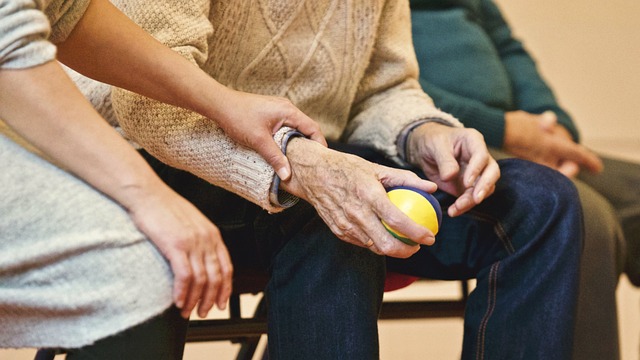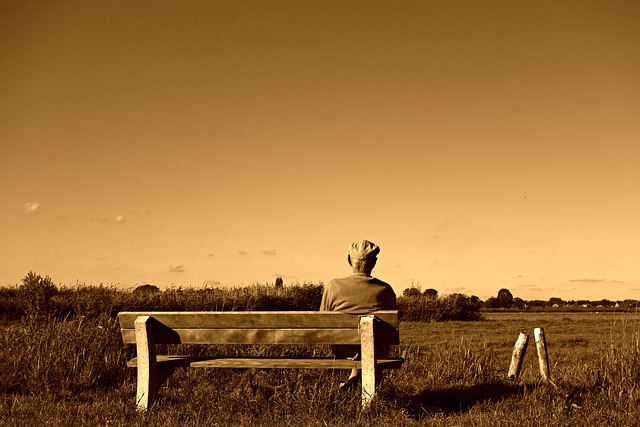Elderly Companion Services have been revolutionized through technology, now offering sophisticated medication management systems that help seniors adhere to their medication schedules effectively. These systems include smart pillboxes with alarms and notifications, mobile applications with personalized reminders, and wearable devices that track medication intake and alert caregivers to any missed doses. Additionally, these platforms facilitate direct communication with healthcare providers for real-time guidance and issue resolution. This integration ensures timely medication management, reducing the risks of missed or incorrect doses and enhancing the overall well-being of seniors. These services also provide companionship and support, which is crucial for those living alone or facing mobility issues, thus significantly improving their quality of life. By offering a comprehensive support system that includes scheduling doctor appointments, managing refills, and coordinating with pharmacies, Elderly Companion Services play an essential role in the healthcare management of the elderly, contributing to better health outcomes and peace of mind for both seniors and their families.
As the population ages, ensuring the health and well-being of seniors becomes a paramount concern. Medication adherence is a critical aspect of elderly care, with missing doses posing significant health risks. This article delves into the innovative approaches to medication reminders in elderly companion services, highlighting both technological advancements and the indispensable human touch. We explore how leveraging technology through smart pillboxes, mobile apps, and integrating these tools with home health care and telehealth solutions can enhance safety and compliance for senior medication management. Furthermore, we examine case studies where these systems have been successfully implemented in companion services, underscoring their effectiveness. Additionally, the article emphasizes the importance of personalized care, trained caregivers, and empathetic relationships to provide effective medication reminders. Coordination with healthcare providers and robust feedback mechanisms complete the picture of a comprehensive approach to ensuring seniors receive timely and accurate medication reminders, thereby maintaining their health and improving their quality of life.
- Leveraging Technology for Medication Adherence in Elderly Companion Services
- 1. Overview of Medication Reminder Systems
Leveraging Technology for Medication Adherence in Elderly Companion Services

Technology has become an integral part of healthcare, particularly in elderly companion services where medication adherence is paramount for seniors’ well-being. These services leverage advanced reminders and monitoring systems to assist the elderly in managing their medications effectively. Smart pillboxes with alarms and notifications are a common tool, ensuring that seniors take their medicines at the correct times without fail. Moreover, these devices often come with features that can alert caregivers or family members if a dose is missed, providing an additional layer of security and prompting immediate intervention if necessary.
The integration of mobile applications and wearable technology further enhances medication adherence in elderly companion services. These platforms can send personalized reminders, track medication intake, and even provide educational content to help seniors understand the importance of their regimen. Furthermore, they often include two-way communication capabilities, allowing for real-time updates and the ability to report any issues directly to healthcare providers. This technology not only aids in preventing missed doses but also empowers seniors with the knowledge and tools needed to maintain their health, thereby improving overall outcomes within elderly companion services.
1. Overview of Medication Reminder Systems

Medication reminder systems are critical tools for ensuring seniors take their medication as prescribed, thereby maintaining their health and well-being. These systems come in various forms, from simple pillboxes to sophisticated elderly companion services equipped with alerts, reminders, and even medication management apps that can be accessed via smartphones or specialized devices. The goal of these systems is to reduce the risk of missed doses, overdoses, and the myriad negative health outcomes associated with incorrect medication schedules. Elderly companion services often integrate with healthcare providers to keep a watchful eye on medication adherence, offering peace of mind to both seniors and their families. These services not only remind users when it’s time to take their medicine but can also provide additional support such as scheduling doctor appointments, managing refills, and coordinating with pharmacies, thus creating a holistic approach to medication management for the elderly.
Advancements in technology have led to the development of highly personalized and interactive systems that can adapt to individual needs and preferences. These systems may use voice prompts, visual cues, or even tactile alerts to ensure that seniors are reminded of their dosage schedules in a manner that is most effective for them. Moreover, they often include features that track medication intake, allowing caregivers and healthcare professionals to monitor adherence remotely. This level of oversight ensures that any deviation from the prescribed regimen can be promptly addressed, thereby minimizing the risk of adverse health events. Elderly companion services, in particular, excel at providing a layer of companionship and support, which is essential for the elderly who may live alone or have limited mobility, thereby enhancing their overall quality of life.
Incorporating technology into elderly companion services significantly enhances medication adherence for seniors, a crucial aspect of their health and well-being. The overview of medication reminder systems underscores the effectiveness of these tools in managing complex medication regimens. By integrating user-friendly, reliable technologies, caregivers can ensure timely medication intake, improving health outcomes for the aging population. These systems not only provide peace of mind for both seniors and their families but also represent a step forward in personalized elderly companion care services. With continued innovation and adaptation to individual needs, these digital solutions will remain indispensable in supporting the health journey of older adults.






